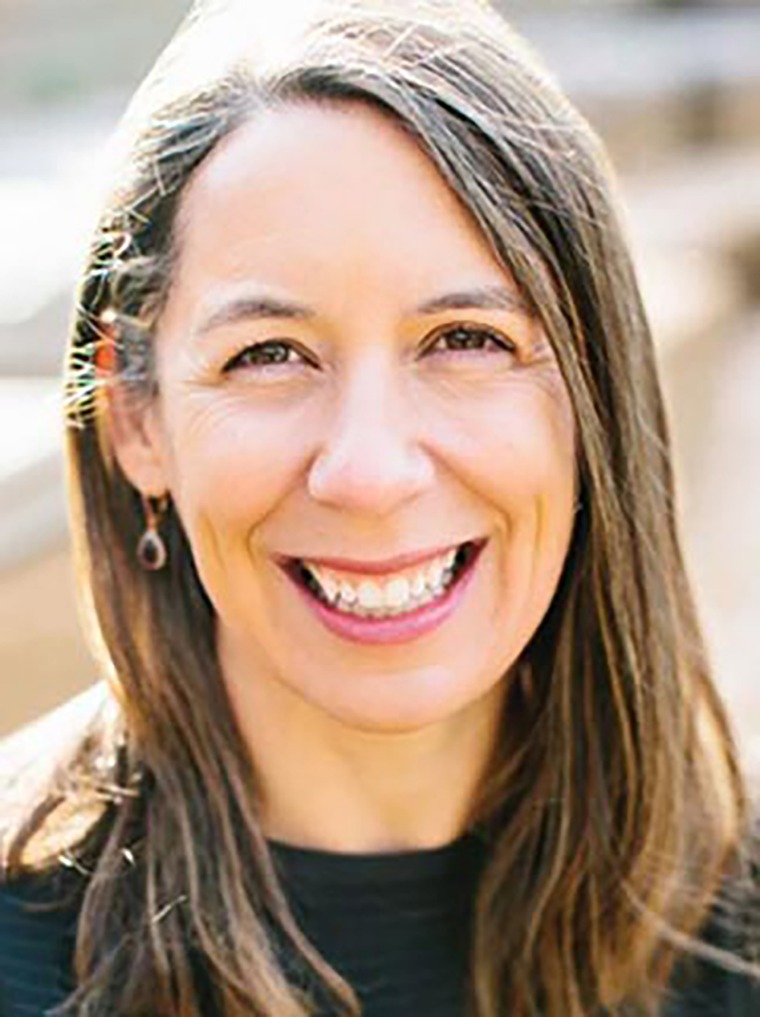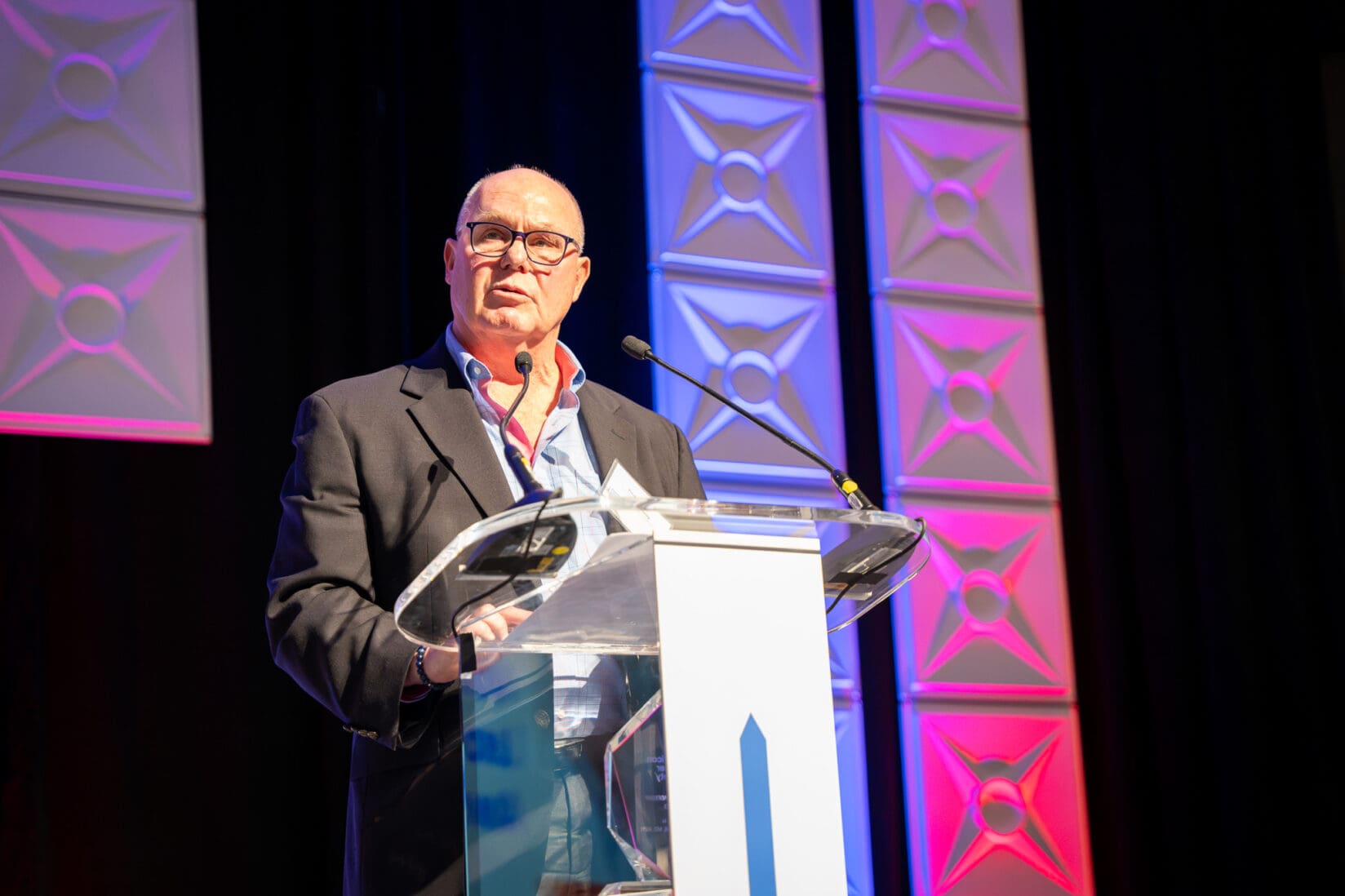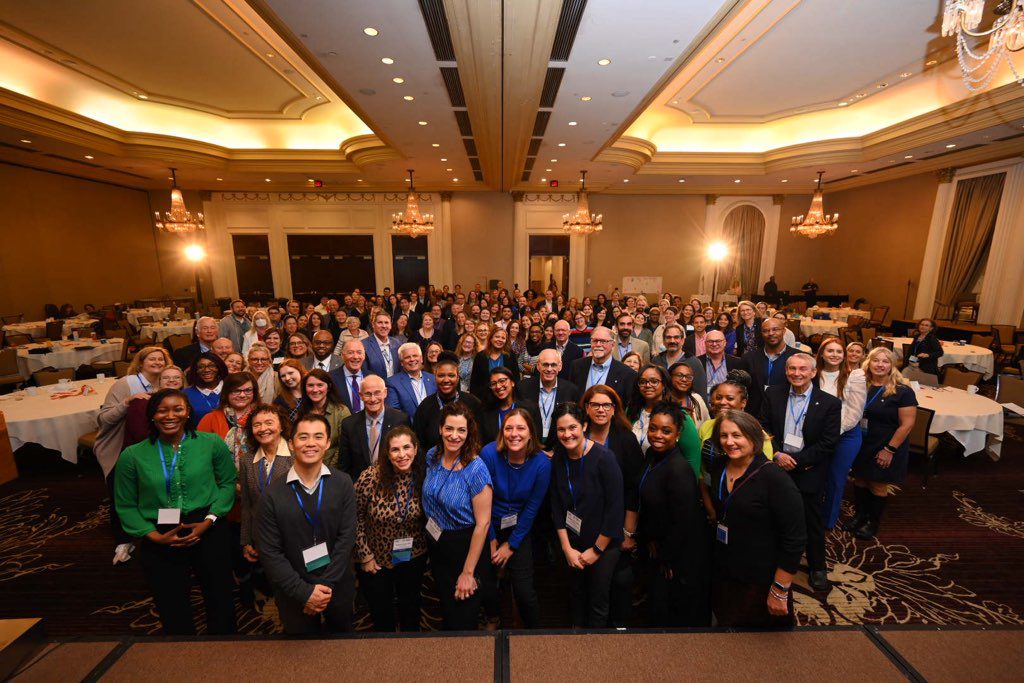Lynch Syndrome and our Heroes
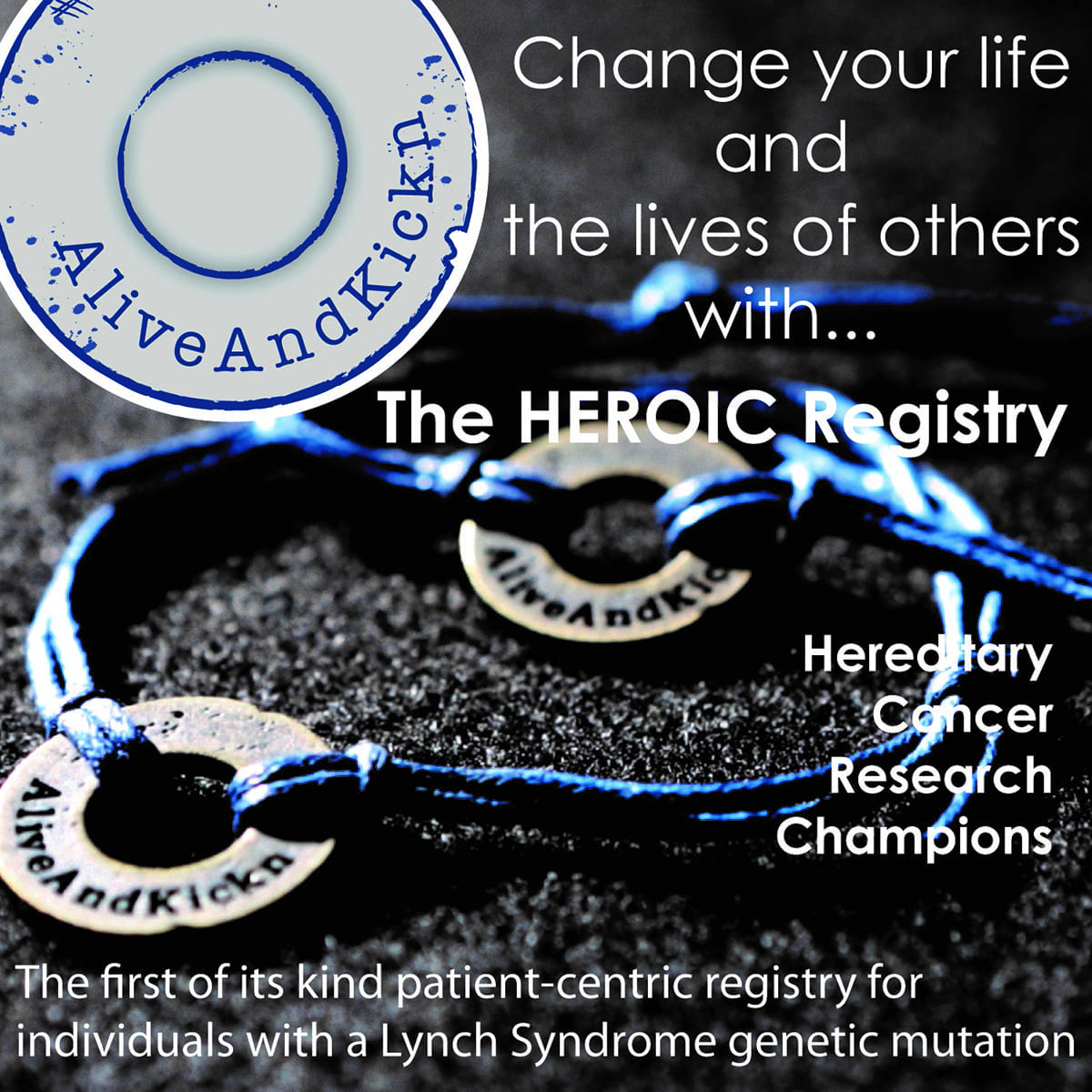
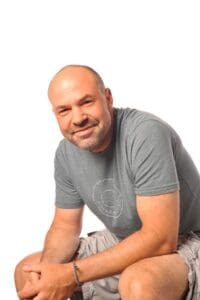 David Dubin co-founded AliveAndKickn with Robin Dubin in 2012. David is MLH1 Lynch Syndrome positive and is a three-time cancer survivor (colon x2, kidney). He is currently the Director of Sales in the Genetics and Genomics Department at the Icahn School of Medicine at Mount Sinai Hospital in New York. David is a frequent speaker and has been an active advocate for many years, having been honored with the 2013 Sapphire Visionary Award from the Colon Cancer Alliance as well as being named Mr. January in the 2012 Colondar. Robin Beth Dubin is Executive Director of AliveAndKickn. David’s grandfather, father and older brother all have had colon cancer, some multiple times. David and Robin have three sons, who are all active in AliveAndKickn as well.
David Dubin co-founded AliveAndKickn with Robin Dubin in 2012. David is MLH1 Lynch Syndrome positive and is a three-time cancer survivor (colon x2, kidney). He is currently the Director of Sales in the Genetics and Genomics Department at the Icahn School of Medicine at Mount Sinai Hospital in New York. David is a frequent speaker and has been an active advocate for many years, having been honored with the 2013 Sapphire Visionary Award from the Colon Cancer Alliance as well as being named Mr. January in the 2012 Colondar. Robin Beth Dubin is Executive Director of AliveAndKickn. David’s grandfather, father and older brother all have had colon cancer, some multiple times. David and Robin have three sons, who are all active in AliveAndKickn as well.
Hi, David! We’re happy to connect with you to learn about the work you’re doing. Can you tell us a little about yourself and how you ended up founding an organization to address Lynch Syndrome?
I was diagnosed with colorectal cancer at age 29, which made me the youngest but not the only one in my family to receive this diagnosis. Every Dubin male for the past three generations has had colon cancer, sometimes more than once. I inherited Lynch Syndrome, a genetic mutation that increases a person’s risk for certain cancers. It is the most common inherited cause of colorectal cancer. Many individuals with a Lynch mutation develop related cancers at very early ages, much younger than the general population.
I wanted to do something to make life better for individuals and families affected by Lynch Syndrome, so I founded AliveAndKickn with my wife Robin in 2012. AliveAndKickn’s mission is to improve the lives of individuals and families affected by Lynch Syndrome and associated cancers through research, education, and screening. We’re fortunate to have the partnership of numerous colorectal cancer-focus organizations, which has allowed us to make an incredible amount of progress in our first four years.
We understand you’ve launched a new resource called the HEROIC Registry. Tell us a little bit about it.
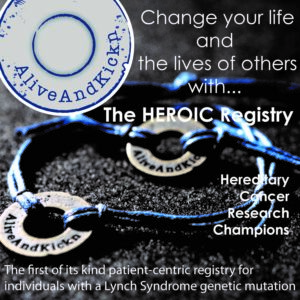 We launched The HEROIC Registry, Hereditary Cancer Research Champions, just over two months ago in March 2016. It’s a first of its kind patient-centric genetic database that enables patients to take an active role in furthering research into Lynch Syndrome genetic mutations. The Heroic Registry allows patients to contribute medical information and their experiences living with Lynch Syndrome and its associated cancers to help researchers develop new treatments, understand the various Lynch genetic mutations, write medical papers and conduct further studies and clinical trials. Patient data can shape the types of research studies to be conducted that are most beneficial to the patient.
We launched The HEROIC Registry, Hereditary Cancer Research Champions, just over two months ago in March 2016. It’s a first of its kind patient-centric genetic database that enables patients to take an active role in furthering research into Lynch Syndrome genetic mutations. The Heroic Registry allows patients to contribute medical information and their experiences living with Lynch Syndrome and its associated cancers to help researchers develop new treatments, understand the various Lynch genetic mutations, write medical papers and conduct further studies and clinical trials. Patient data can shape the types of research studies to be conducted that are most beneficial to the patient.
We’ve seen an incredible response since our launch. Close to 60 people have registered so far, half of which are “previvors,” which is how we refer to individuals with Lynch Syndrome who have not yet been diagnosed with a cancer. And of those who have signed up, almost all have been willing to share data for research purposes. We’re looking forward to seeing the numbers climb over time as we continue to share information about the new site on social media and with our partners.
Why is the registry needed?
Simply put, because nothing like this existed. As far as we know it’s the first of its kind. There are registries based in individual academic medical centers, but nothing existed outside the bounds of an institution. And the need of it is clear. According to the American Gastroenterological Association, statistically, one in every 440 Americans has Lynch syndrome, but as much as 95% of these people have not been diagnosed. Many individuals with a Lynch mutation develop related cancers at very early ages, much younger than the general population. If you have a parent with a Lynch mutation you have a 50% likelihood of inheriting that mutation. Knowing your family cancer history can help determine if you are at risk, even if it was NOT necessarily colon cancer.
With today’s technology, patients are no longer passive bystanders in managing their condition. They can now play an active role in the research process, sharing insights, experiences and valuable health information about Lynch Syndrome and its associated cancers that can lead to new discoveries. The social aspect of sharing information can be just as important as the medical aspect.
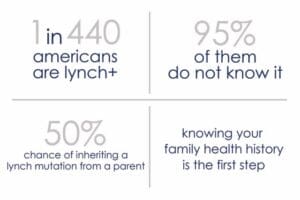
How does the HEROIC Registry address privacy concerns?
Patients can share as much of your health information as they want, when they want, and with whom they want. They control who views it, what information they would like to share and which research studies they are willing to participate in. Ensuring that their medical data remains secure is our top priority. We protect patient privacy with cutting-edge technology.
What are the research goals for the HEROIC Registry?
Patient medical data is incredibly valuable. By aggregating large amounts of data from thousands of patients living with Lynch, researchers are able to analyze the conditions relevant to specific mutations and help answer questions most important to patients. Patient data can shape the types of research studies to be conducted that are most beneficial to the patient. Survivors and previvors, hospitals, laboratories, physicians, providers, and insurance companies can feel comfortable with the security provided by the HEROIC Registry.
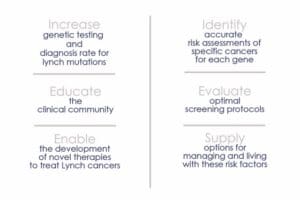 The HEROIC Registry will be a valuable resource for patients, clinicians and researchers, and AliveAndKickn welcomes partners who are interested in collaborating on this project.
The HEROIC Registry will be a valuable resource for patients, clinicians and researchers, and AliveAndKickn welcomes partners who are interested in collaborating on this project.
What can our readers do to help get the word out about the HEROIC Registry?
We can all play a part in encouraging individuals and families affected by Lynch to get involved. If you are a clinician or work in a medical setting, make sure the providers that work with colorectal cancer patients and survivors are aware of this new tool. And if you work with colorectal cancer patients or survivors outside the medical setting, you can share the tool in your newsletters, social media and in conferences or community events.
Email us at [email protected] to discuss partnership opportunities, registration, or to request brochures. Visit our website, aliveandkickn.org, and connect with us on social media at @AliveAndKicknDD with hashtag #IAmAliveAndKickn and on Facebook at facebook.com/AliveAndKickn/. And if you’re planning to go to Digestive Diseases Week in San Diego, CA on May 22nd to 24th, be sure to stop by our booth!
Thank you for sharing your story with us! We look forward to hearing more about your work and the HEROIC Registry in the future.

[vc_widget_sidebar sidebar_id=”sidebar-1″]
"*" indicates required fields
We Highlight Successes, Leaders, Best Practices, And Tools That Are Making An Impact In The Nationwide Movement To Reach 80% Screened For Colorectal Cancer.
Do you have a suggestion for a future blog topic? We welcome you to share your suggestions by emailing [email protected].
Blog Policy
Opinions expressed in these blog posts are that of the author and do not represent policies of the National Colorectal Cancer Roundtable or the author’s institution.
Our staff moderate all comments on the 80% Blog. While we do not censor based on point of view, we will delete or edit comments that are offensive or off topic. Click here to view full version.
© 2024 American Cancer Society National Colorectal Cancer Roundtable. All rights reserved.
